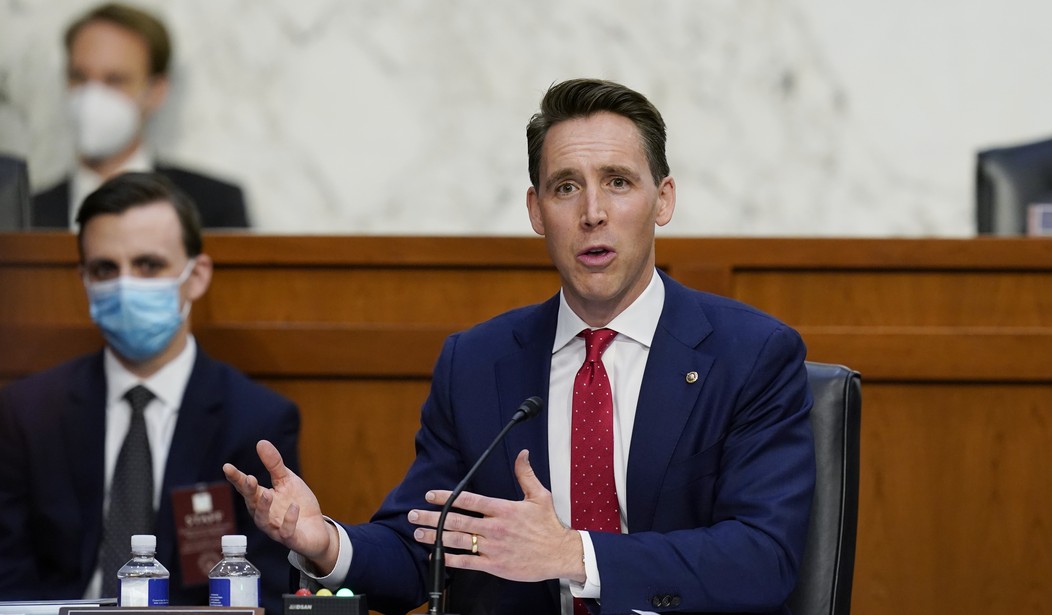As we have covered here over the past few months, Finland and Sweden have both filed applications to become NATO members. It’s a process that has traditionally taken years for countries to complete, but there has been a palpable sense of urgency among the members of the alliance to push Finland and Sweden to the head of the line. This expansion would presumably create more of a bulwark against Russia and make Vladimir Putin less likely to attack either of these countries, particularly Finland. But the governments of all the members must vote in favor of the applications if they are to gain entry. Congress is preparing to consider and vote on the request soon. But it won’t be unanimous. Missouri Senator Josh Hawley has published a letter explaining why he will be a “no” vote on allowing these new members to join. It’s not that he has anything in particular against Finland and Sweden. It’s just that he believes we’re looking at the wrong threat and this proposal could weaken us further. (National Interest)
The Senate will soon vote on adding Sweden and Finland to NATO. According to the terms of NATO’s founding treaty, that means the United States would be obliged to defend both countries in the event of a military attack. I intend to vote no.
Finland and Sweden want to join the Atlantic Alliance to head off further Russian aggression in Europe. That is entirely understandable given their location and security needs. But America’s greatest foreign adversary doesn’t loom over Europe. It looms in Asia. I am talking of course about the People’s Republic of China. And when it comes to Chinese imperialism, the American people should know the truth: the United States is not ready to resist it. Expanding American security commitments in Europe now would only make that problem worse—and America, less safe.
China has adopted a policy of dominating its neighbors and bullying free nations into doing its bidding. The Chinese Communist Party seeks effective control over Asia and the Pacific. And it seeks power over the United States — power to dictate our terms of trade, power to take American jobs, power to weaken our economy and make us dependent on Beijing. If left undeterred, China will gain that power.
Hawley points out that many European nations are still relying too heavily on the United States for their military defense. Some have recently begun investing more, but they should all be spending at least 2% of their GDP on their own military capabilities. Sweden isn’t doing that and Finland hasn’t indicated that their recent surge in military spending will be continued. America’s resources will be spread even thinner in Europe if we have to cover these two countries along with the rest of NATO.
I don’t know if there are enough other “no” votes hiding out there to defeat the measure, but that may not wind up mattering in the end. It’s hard to argue with Hawley’s logic on this, though he will no doubt be portrayed as someone who is betraying the western alliance in some fashion. Russia is definitely a threat to global stability and they have proven that by invading Ukraine. But that threat is also currently known and, for the moment, contained. Unless Putin wants to up the ante by unleashing some nukes, he simply doesn’t have the resources to expand his aggression into a massive land war in Europe.
China, on the other hand, is a clear and present danger as we have discussed here many times. They haven’t attacked anyone militarily yet, but they are moving the pieces around the board to ensure that they will have that option all across the Pacific if the need arises. They have already expanded their sphere of influence all across the western and southern Pacific and are engaged in negotiations to establish new military bases in some of those countries. As Hawley points out, we do not have our resources deployed in the Pacific in the manner they would need to be if we had to confront a sudden challenge from China. And given the current levels of tension regarding Taiwan, that’s a definite possibility.
Even if the applications of Finland and Sweden are approved and they join NATO, Hawley is raising questions that demand answers. As he points out, we do not have unlimited resources. Europe needs to be doing more to buttress NATO’s defensive capabilities against any future Russian aggression. And the United States needs to be shifting our focus to the Pacific while still supporting our NATO allies to the extent that we can afford to do so.








Join the conversation as a VIP Member